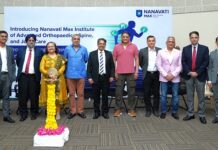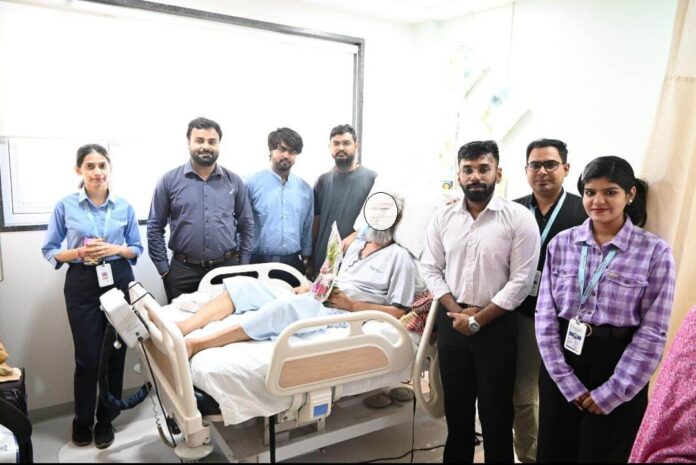A medical team at Zynova Shalby Hospital, led by Dr. Hemant Patel (General and Laparoscopic Surgeon), Dr. Urvi Maheshwari (Physician), and Dr. Neha Patil (Intensivist), successfully treated a 60-year-old Bangladeshi man diagnosed with superior mesenteric artery (SMA) thrombosis, a rare condition affecting the small intestine.
After experiencing severe abdominal pain and respiratory distress due to this condition, the patient is now symptom-free and ready to return to Bangladesh.
Mohammad Monirujjaman, a 60-year-old from Bangladesh, had previously battled both intestine and liver cancer, undergoing surgical procedures for those conditions. His health deteriorated further when he developed intense abdominal pain, leading him to seek medical attention at multiple facilities. Eventually, he was admitted to Zynova Shalby Hospital.
Dr. Hemant Patel, a General and Laparoscopic Surgeon at the hospital, explained that Monirujjaman was admitted on the afternoon of October 31, 2024, during Diwali, with severe abdominal pain and respiratory distress. He was immediately intubated and transferred to the ICU.
Scans and blood tests revealed that he had small bowel gangrene caused by superior mesenteric artery thrombosis (SMA), a life-threatening condition where the artery supplying blood to the small intestine becomes blocked. This left most of the small intestine nonviable, except for a 30 cm section, which was still functioning. The patient also had high creatinine levels and an infection in his blood, requiring antibiotics.
Dr. Patel and his team made the decision to perform a laparotomy with near-total small bowel resection, leaving only the viable portion of the small intestine. The surgery, which took around four hours, involved removing the gangrenous portion of the small intestine and creating a proximal jejunostomy.
After the procedure, the patient was placed on a ventilator in the ICU for seven days. He was eventually weaned off the ventilator on November 7, 2024, and moved to a regular ward on November 18, 2024. The patient was discharged and traveled back to Bangladesh, where he remains in contact with the medical team via phone and WhatsApp, reporting significant improvement and a return to normal activities.























